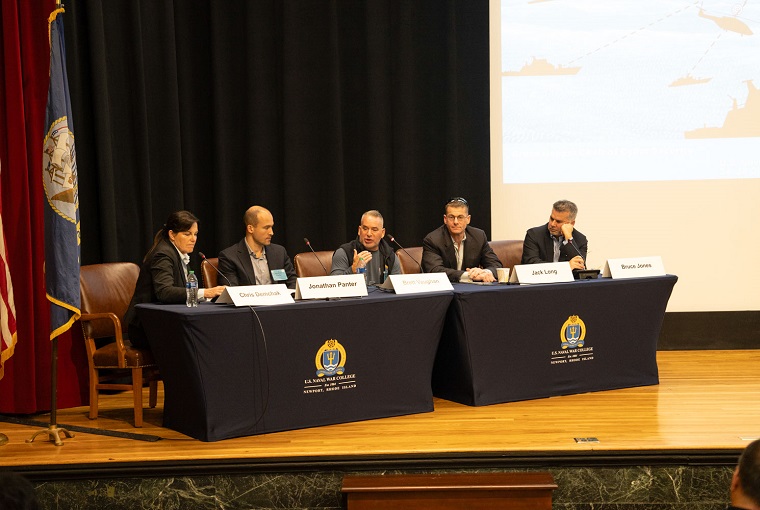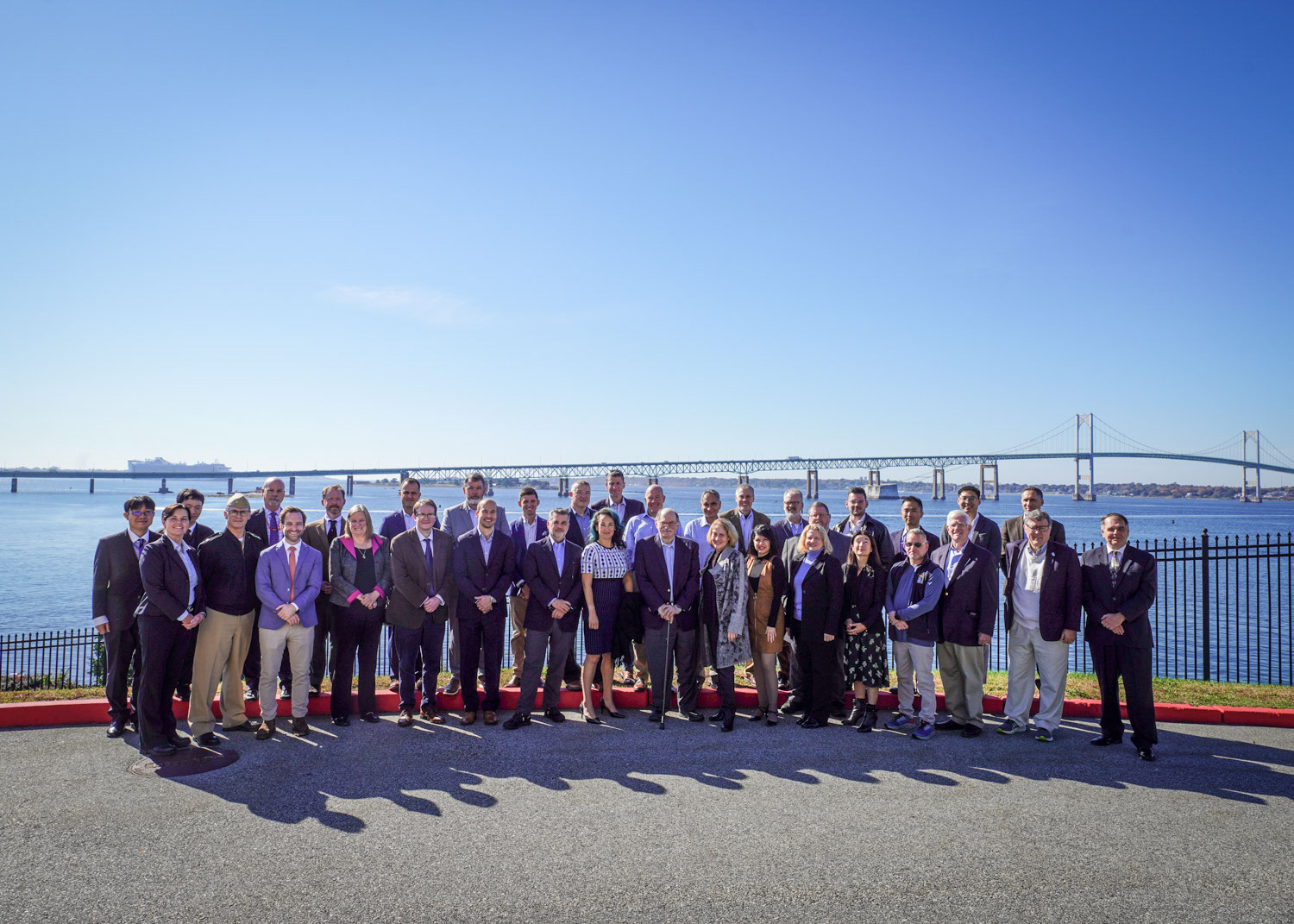U.S. Naval War College Hosts Fourth Cyber Warfare and Emerging Technologies Workshop

NEWPORT, RI – U.S. Naval War College (NWC) hosted the fourth iteration of its Cyber Warfare, Navies and Emerging Technologies (CWNET) Workshop, a series focused on emerging technologies and national security, onboard Naval Station Newport, Oct. 25-26.
A collaborative endeavor between the college’s Hopper Chair of Cyber Security and Leidos Chair of Future Warfare Studies, the event built upon the legacy of NWC’s former Center for Cyber Conflict Studies (C3S), bringing together a wide range of individuals to discuss the effects of emerging technologies on national defense with special emphasis on challenges in the maritime domain and a changing global environment.
“The U.S Navy, Marine Corps, and Coast Guard Advantage at Sea strategy identifies the need for continually examining ‘new and converging technologies,’ all of which are facilitated by the digital infrastructure at the center of your discussions,” said Rear Adm. Pete Garvin, president of NWC, in his opening remarks.

Participants included U.S. Navy, Marine Corps and Coast Guard officers; Department of Defense (DoD) scientists; civilian cyber and maritime specialists; officials from partner nations; and NWC faculty.
The workshop featured keynote addresses by Chris Cleary, principal cyber advisor, Department of the Navy (DON) and Emily Goldman, Ph.D., strategist, U.S. Cyber Command (USCYBERCOM). Cleary noted that CWNET is the format place for today’s leaders to share their ideas on how the Navy must embrace cyber as a war-fighting domain and work toward it becoming a core competency for the “strike group of the future.”
“The Navy must not only prepare forces to be presented to the joint warfighter but also learn to incorporate cyber forces into the maritime fight as well," he stated.
Focused on understanding and responding appropriately to global cyber challenges, CWNET is part of the overall research mission of NWC’s Center for Naval War Studies (CNWS) that supports the U.S. Navy, Marine Corps and all cyber activities in the DoD and Department of Homeland Security (DOHS). CWNET workshops provide opportunities for collaboration between researchers and scholars from both the U.S. government and civilian organizations concerning cyber warfare in the maritime domain.
Workshop attendees participated in eight panels with four individual speakers covering topics such as cyberspace and the maritime environment; naval cyberspace; undersea biodefense and space; global navies; cyber, AI, and autonomy; cyber and maritime resilience; naval operations and cyber roles; and strategic issues and futures. Panel segments enabled a comprehensive view of current and future cyber warfare and offered valuable insights for authors, speakers, and participants on how U.S. naval forces need to anticipate and adapt to an emergingly hostile, cyber world.
"The goal is to bring cyber specialists, naval strategists and warfighters together,” said Chris Demchak, Ph.D., NWC Hopper Chair of Cyber Security. “In the past, the cyber security community has not focused on, or even been aware of, the cyber threats in the maritime world.”
Demchak added that the department is striving to create greater interest in the topic while providing practical ideas for the DoD.
Sam Tangredi, Ph.D., NWC Leidos Chair of Future Warfare Studies, also indicated that cyber warfare at and from the sea is an element of future warfare studies rarely studied by scholars.
“We see it as the responsibility of NWC to encourage such research,” he asserted. “If we don't initiate it here, it won't be done."
Information gleaned from this year’s CWNET workshop will be documented in an upcoming U.S. Naval Institute (USNI) volume linking cyber, navies, artificial intelligence, quantum technology and threats to and from space.
NWC delivers excellence in education, research, and outreach, informing today’s decision-makers and educating tomorrow’s leaders. The college provides educational experiences and learning opportunities that develop students’ ability to anticipate and prepare strategically for the future, strengthen the foundations of peace, and create a decisive warfighting advantage. Its Center for Naval War Studies serves as a home for original research, innovative thinking, and creative problem solving and is dedicated to assisting the Chief of Naval Operations (CNO) to define the future Navy and the Navy's contribution to national strategy.
